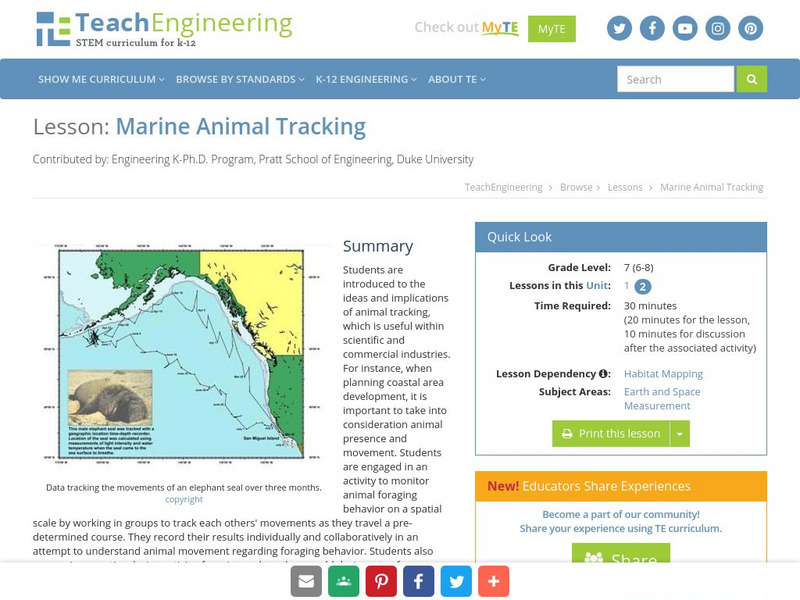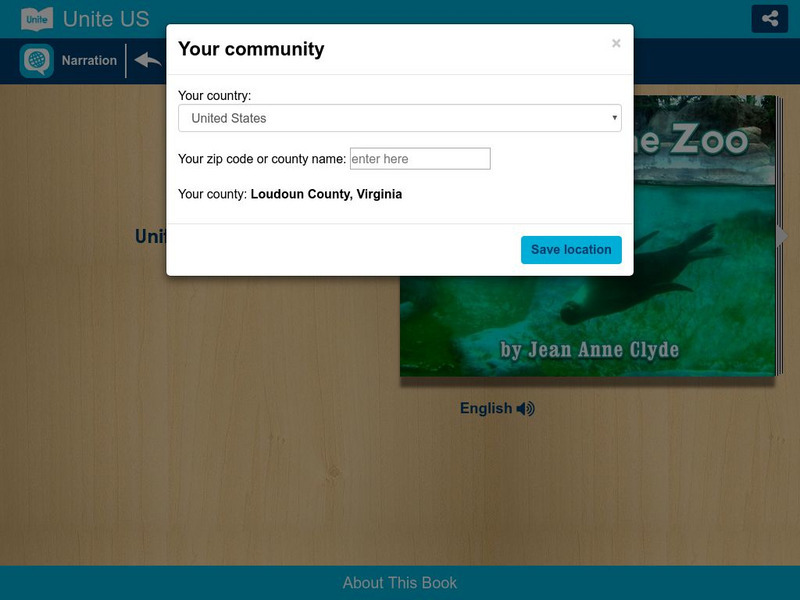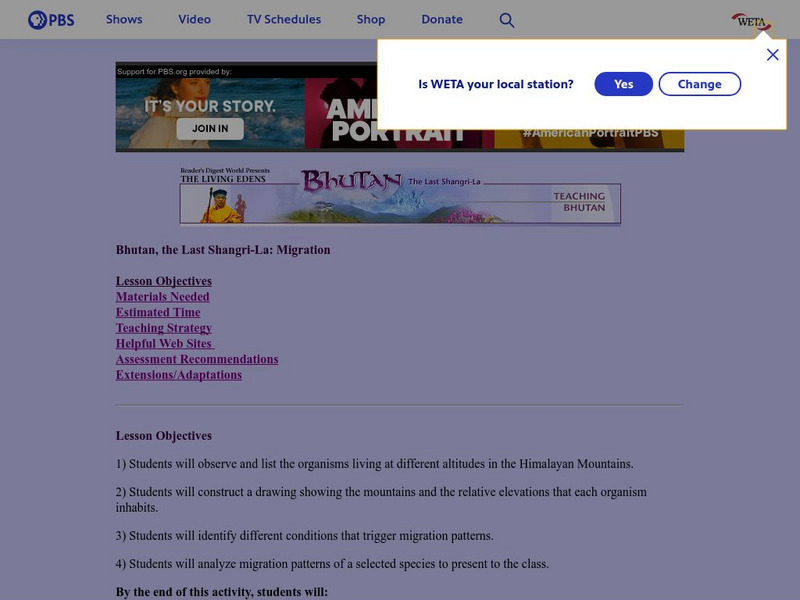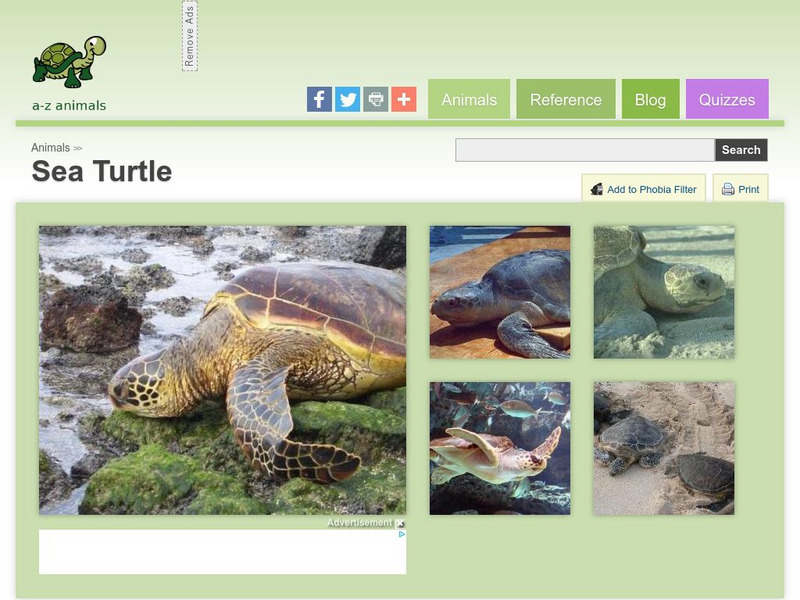Ducksters
Ducksters: Animals for Kids: Animal Migrations
Kids learn about Animal Migrations. How animals travel for miles across the land, air, and sea for the changing seasons.
Other
Ocean Tracks: Fact or Artifact? Interpreting Patterns in Ocean Tracks Data [Pdf]
Ever wonder where marine animals go? How fast they swim? How deep they dive? Electronic tagging has opened a new window into the world of the open ocean. Ocean Tracks gives you access to data collected by tags on real live migrating...
TeachEngineering
Teach Engineering: Marine Animal Tracking
This lesson engages young scholars in an activity to monitor animal foraging behavior on a spatial scale. The students will break into groups and track each other's movements as they move through a pre-determined course. The results will...
Utah Education Network
Uen: Animal Adaptations
A multitude of activities provide help with understanding animal adaptations.
Orpheus Books
Q Files: Animals: Animal Movement
Find out the many different ways that animals move through their environments.
PBS
Pbs Learning Media: The Cuban Crab Migration
In this video segment from Nature, crabs face numerous obstacles in their migration from their forest home to the Caribbean Sea. [4:09]
National Geographic
National Geographic: Animal Navigation
A classroom activity helping students understand how migratory animals know where they're headed when it is time to move.
Utah Education Network
Uen: Plant and Animal Changes
Second graders will learn about animal adaptation, hibernation, and migration.
Unite for Literacy
Unite for Literacy: Healthy Me: Moving at the Zoo
Look at the many different types of animal movement that you can see at the zoo. Book includes audio narration in 17 additional languages with text in English.
Scholastic
Scholastic: Study Jams! Science: Animals: Animal Adaptations
A video and a short multiple-choice quiz on the topic of animal adaptations, that look at physical and behavioral adaptations.
PBS
Pbs Learning Media: Scent of an Alewife
This video segment from NOVA: "Sea Behind the Dunes" tracks the return of spawning alewife fish from the open ocean back to the freshwater streams and ponds where they were born. [3:34]
Scholastic
Scholastic News: Week of 6 16 14: Zebras on the Move
Read about the African animals that hold the record for the longest land migration by a group of mammals.
TES Global
Blendspace: Journeys Grade 3: Stories of Migration
An eighteen-part learning module with links to texts, images, and videos about animal migration.
Annenberg Foundation
Annenberg Learner: Journey North: A Global Study of Wildlife Migration and Seasonal Change
Here you can view maps showing the migratory paths of dozens of animals across the northern hemisphere, report a sighting of one of the animals listed in the database, and much more.
TED Talks
Ted: Ted Ed: Eli the Eel: A Mysterious Migration
James Prosek tracks the life journey of Eli the Anguilla eel as she travels her mysterious "backward" migration from the sea to fresh water and back again. [4:39]
NASA
Nasa: Space P Lace: Play Migration Concentration!
View a short clip of migrating geese and discover interesting facts about why geese migrate and animated pictures of the different kinds of geese n the USA. Coupled with this great information is an interactive game of concentration that...
PBS
Lesson Plan: Organism Migration in Bhutan
Science lesson plan that teaches students about plant & animal migratory patterns in the various zones of Bhutan. Part of the PBS website devoted to Bhutan.
A-Z Animals
A Z Animals: Animal Facts: Robin (Erithacus Rubecula)
Provides photographs and a fact card about the robin, as distinct from the American robin, which is actually a thrush. Explains where robins are found, their physical characteristics, diet, migration behavior, mating, and predators.
A-Z Animals
A Z Animals: Animal Facts: Sea Turtle (Chelonioidea)
Provides photographs and a fact card about sea turtles. Discusses where they are found, the different species, egg-laying behavior, threats, diet, migration, reproduction, predators, and size.
Soft Schools
Soft Schools: Animal Quizzes
Links to science quizzes about animals and birds. Topics include animal classification, butterfly, beetle and frog life cycles, spiders, bats, birds of prey, owls, birds of the jungle, rainforest, cold climates and migration.
PBS
Pbs Learning Media: Tracking Polar Bears
In this interactive activity adapted from the USGS Alaska Science Center, students will track the movements of a polar bear as it migrates across the changing Arctic sea ice and compare the paths of four different polar bears.
Smithsonian Institution
National Museum of Natural History: Where Do Mammals Live?: Wildebeest
Brief illustrated overview of the wildebeest and an accompanying video demonstrate the physical adaptations that allow this animal to eat and digest tough African grasses.
Other
Arizona Sonora Desert Museum : Animal Fact Sheet: Townsend's Big Eared Bat
This fact sheet on Townsend's Big-Eared Bat provides details on physical characteristics, migration, range, habitat, conservation, diet, reproduction, and other extra-fun facts.
Other
Arizona Sonora Desert Museum : Animal Fact Sheet: Big Brown Bat
This fact sheet on the big brown bat provides details on physical characteristics, migration, range, habitat, conservation, diet, reproduction, and other extra-fun facts.



![Ocean Tracks: Fact or Artifact? Interpreting Patterns in Ocean Tracks Data [Pdf] Lesson Plan Ocean Tracks: Fact or Artifact? Interpreting Patterns in Ocean Tracks Data [Pdf] Lesson Plan](https://d15y2dacu3jp90.cloudfront.net/images/attachment_defaults/resource/large/FPO-knovation.png)













